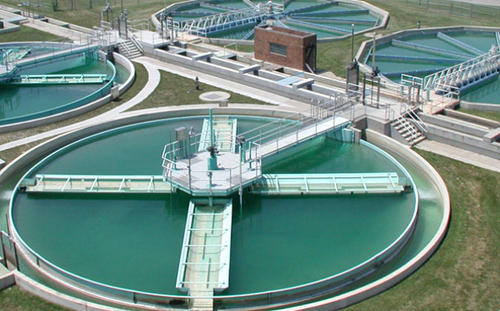How Can Zeoturb Flocculant Provide Effective Floccculation Water Treatment While Protecting Sewer Networks?

Concrete distribution and sewer networks are being corroded at an alarming rate partly because of a commonly used additive for conventional flocculation water treatment for domestic drinking water and waste water treatment process according to published reports in the respected journal Science.
In countries throughout the world from industrialized nations like Australia and the USA to developing nations like Colombia, Ghana and the Philippines, the lifespan of these concrete pipe networks is being reduced by levels upwards of 90%.
Urban societies in particular are dependent upon infrastructure support to function optimally and efficiently. Waste water collection and water distribution networks are critical components of the modern cities of today. These systems protect public health as well as enable economic productivity of our communities and nations.
Why is this corrosion occurring?
This corrosion is occurring due to the presence of hydrogen sulfide (H2S) in these piping networks. This simple, but powerful molecular compound harnessed from organic waste and sewage is metabolized by bacteria and oxidized to create sulfuric acid. This acid has particular corroding capabilities on concrete surfaces, which is the most predominantly supplied material for large diameter piping used to create these sewer and water distribution networks.
Based on study evaluation, it was determined that this corrosion process converts solid concrete into crumbling powder at a rate of up to 10mm a year or more in some worst case scenarios. This would reduce the lifespan of an ordinary collection network from 50-100 years to as little as 10-12 years.
Provided the capital cost intensive nature of building and maintaining these collection and distribution networks, it is crucial to manage this corrosion process both effectively and efficiently to ensure the longevity of these piping systems.
What is it costing us to maintain these systems?
It cost municipalities/townships and cities hundreds of millions of dollars to maintain, replace and repair their waste water collection networks. A similar amount is spent trying to mitigate this problem with costly chemicals in the sewer and distribution networks to mask these issues with little success in many cases.
How can this corrosion problem be solved?
The first step, is to look at the water and waste water process holistically in an integrated way. This method, allows us to assess the sources of potential hydrogen sulfide and what can be done to minimize this contaminant. Studies revealed that there is a surprising but impressive link between waste water management and water treatment. To reduce the generation of hydrogen sulfide, we would need to either reduce the contribution of sulfate to the waste water network or reduce the organics in the waste. The easiest way to do this is to reduce the contribution of sulfate.
A closer look at the water treatment process
Many municipal drinking water plants utilize coagulation and flocculation water treatment chemicals to remove turbidity in the drinking water purification process. In studies, it was revealed that over 50% of sulfate could be the result of the drinking water purification process.
One of the most common coagulation/flocculation water treatment chemical is aluminum sulfate “alum” due to its ease of availability and relatively low cost.
In this “alum” treatment process, while the aluminum is combined with the contaminant and removed from the water, the sulfate is soluble and remains in the water. The levels of sulfate may not cause harm to humans, however, they have a proven effect on significant sulfide formation in sewer networks.
A solution obtained
A change to a natural environmental friendly liquid bio-organic flocculation agent such as GWT Zeoturb, would mean that the source of sulfate that is contributing to the significant increase in sulfide formation in the sewer networks would be drastically reduced. This process change could be accomplished with low capital cost with additional positive benefits to the cities, municipalities and communities across the world.
Studies have also indicated that by changing from aluminum sulfate to a solution such as the GWT Zeoturb bio-organic flocculant could dramatically reduce concrete corrosion by a factor of 35% after just 10-12 hours and over 60% in longer time duration.
Using GWT ZeoTurb liquid flocculant water treatment would add marginal increases to water costs, but there would be a significant overall cost savings for these municipalities and communities by the drastic reduction in maintenance costs of the sewage networks which would more than justify the change.
These benefits are in addition to the positive impact on the usage of GWT ZeoTurb for flocculation in the waste water treatment processes which would also reduce sludge dewatering and associated sludge disposal costs.
Do you want to know more about Zeoturb bio-organic liquid flocculant, and how it can help your utility reduce operating & maintenance cost by combating the effects of Hydrogen Sulfide (H2S) on the sewer network? Contact the water treatment experts at Genesis Water Technologies, Inc. at 1-877-267-3699 or reach out to us via email at customersupport@genesiswatertech.com for an initial evaluation or for more information.

